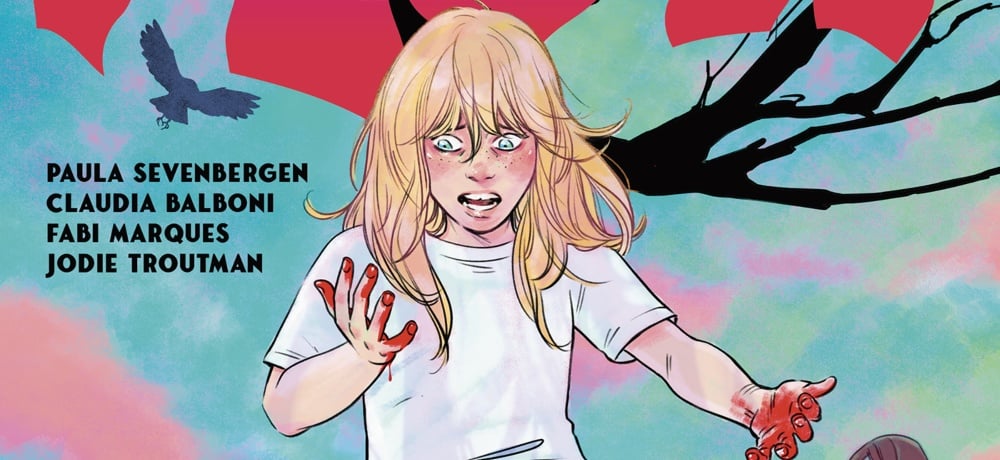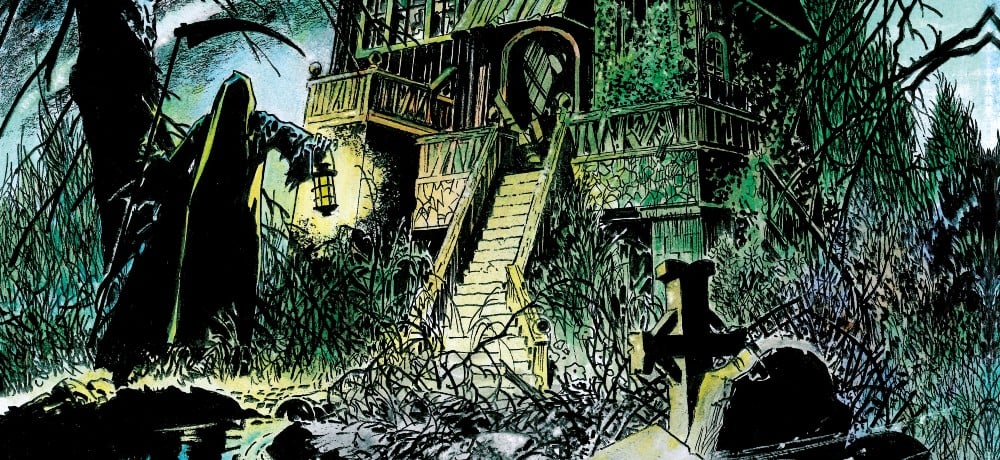





Arriving on Blu-ray, DVD, and 4K UltraHD today is The First Purge, the latest entry in the successful Purge film franchise. Directed by Gerard McMurray and taking viewers back to where it all began, The First Purge is centered around the very first social experiment held by the New Founding Fathers of America, offering Staten Island residents $5,000 if they choose to stay on the island during 12 hours of lawlessness.
Daily Dead recently spoke with McMurray about taking the helm of The First Purge, and he discussed his experiences collaborating with James DeMonaco (the driving creative force behind all The Purge films), wanting to explore complicated stories, and blending various subgenres together for this fourth installment in The Purge franchise.
Great to speak with you today, Gerard. I know James has been a driving force in this franchise since the very beginning. So, from your perspective, how great did it feel to have him hand you the reins on this one in particular, and what was it about this story that stuck with you as a storyteller, where you knew you wanted to be the guy who brought this sequel to the big screen?
Gerard McMurray: It was great to be a part of James passing The Purge to a new generation. I met with James, and we had a really good connection, and we also loved the same kind of films, so I knew working with him was going to be fun. I just felt like I wanted to make something special with this, to explore what it felt like for a black man on Purge Night. Because of everything going on, there’s so much political and social commentary you can make with this story and have it reflect the world right now, and I felt like that was important. My vision was that I wanted to say something, but still make it fun and entertaining at the same time, all while using my own voice. And it was great coming into a very warm situation with both Jason [Blum] and James. They were great.
Also, what stood out to me about this film versus the other ones is that you get the essential Purge film elements, but at the same time you also make this really great slasher movie by threading the character Skeletor throughout the film. And beyond that, once you get to the final act, this becomes something completely different and badass. Can you talk about balancing out those different elements and finding a way to make them all work together?
Gerard McMurray: Well, that's one of the things I liked about making this film, making something that becomes a total genre-bender by the end. You get the horror, you get the thriller elements, and there’s also a lot of action in there, too. I really tried to focus on adding in all these things that I love when I’m watching a movie. I also wanted to show my maturity as a filmmaker, too, because I'm a fan of all these different genres. And what I love about genre pieces is that you can also say something within these really cool elements, and it can become so many different things to so many different people.
The character of Nya is this really great emotional anchor for everything in this film, but Dmitri is very interesting because in most other movies, he would be the villain. But in The First Purge, you really mix up the concepts of good guys and bad guys, and I think it's interesting how you explore the spectrum of these characters. Was that conscious in the back of your head as you were working on the film, that this wasn’t going to deliver the typical good versus bad cinematic argument, like maybe how the other Purge movies have?
Gerard McMurray: Yeah, that's what I liked about the characters, because I felt like they were complex and different and had these different layers to them. In any other movie, Dmitri would just be another black drug dealer, but here we had him be someone who did stuff for his community. The things he does are his way of pushing against the system, which is the ultimate boogeyman in the movie. So, in saying that, I like the idea of having complex characters and different checkered pasts and backgrounds, because sometimes that's just how life is. No one is ever just really good or really bad. There's definitely evil in the world, but most people are more complex than just being one thing or the other.
I'm curious, when you're coming into a franchise like this that has been so successful over the years now, it's even spun off into a TV show as well, is that a lot of pressure for you to carry with you? How did you rise to the occasion and make that pressure work to your advantage for The First Purge?
Gerard McMurray: Well, I knew that there were differences going into this, that it wasn’t going to be like the other movies. Because this is the fourth installment, which means it’s the fourth iteration of this world, the challenge to me was, how do I find my voice with this film and do things that we've never seen or heard before in this series?
So, it was important to me to really try to find my voice and try to make it feel like this was Gerard McMurray exploring this world. And exploring the experience of the black man on Purge Night. Everyone was so on board with that, and I was so proud to be able to make it. For as much as James was a key figure in this process, they really let me do, creatively and artistically, some amazing things that I have always wanted to do. It’s been a great experience.